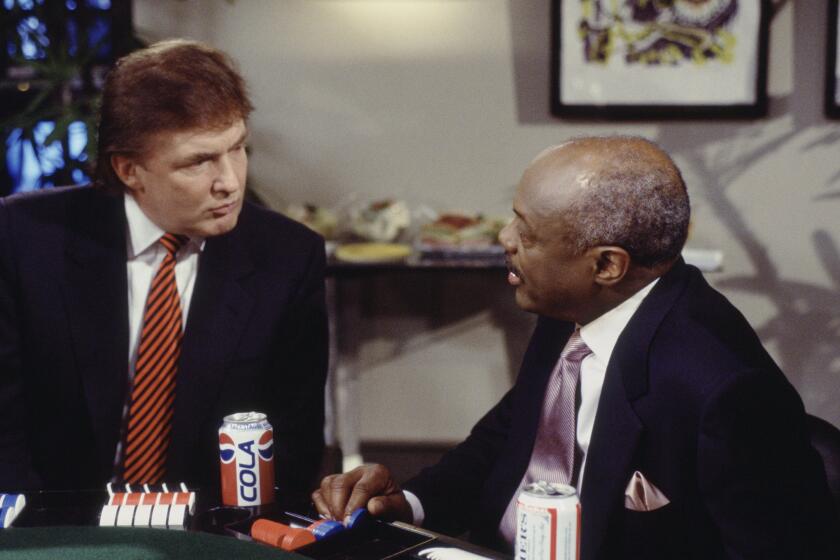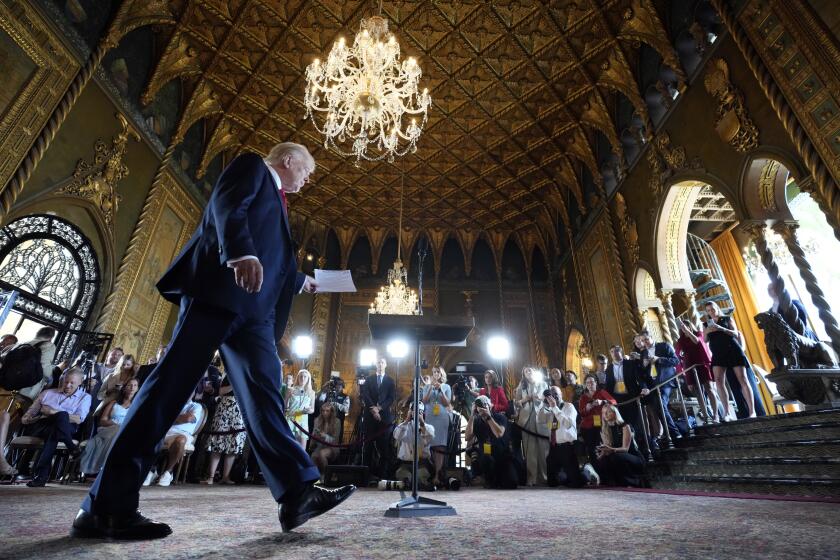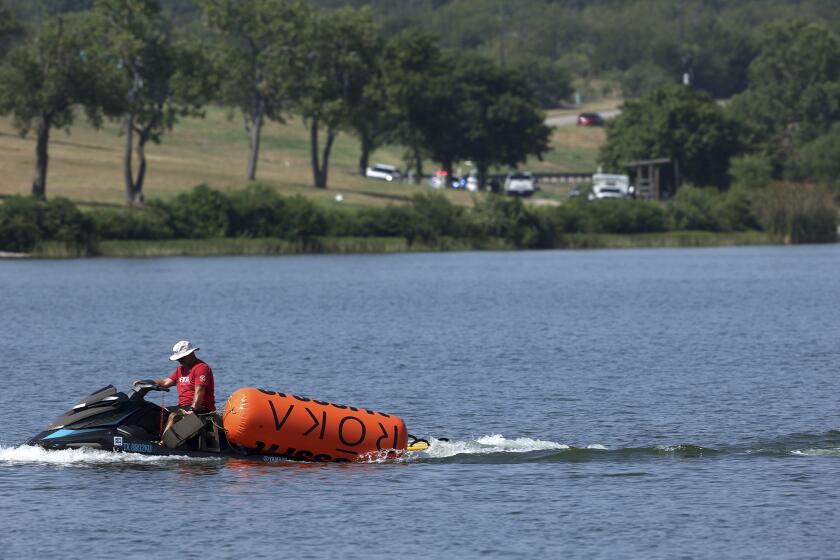Japan Awaits Koizumi’s Fellow Travelers
Japanese Prime Minister Junichiro Koizumi met this morning in Pyongyang with North Korean leader Kim Jong Il, but the real drama will be in his homecoming to Tokyo tonight and in who will be accompanying him on the plane.
Expectations are high that Koizumi will return triumphantly with eight relatives of five Japanese who were abducted to North Korea in the 1970s and released in 2002 after the prime minister’s first trip to Pyongyang, the North Korean capital.
The family members are seven children in their teens and 20s and former U.S. soldier Charles Jenkins, who is believed to have defected to North Korea and is married to one of the Japanese abductees.
During a 90-minute meeting at a state guesthouse in Pyongyang, Kim greeted Koizumi with a cordial handshake and praised his decision to return to North Korea.
“I welcome your brave decision to work together to develop further ties between our countries,” Kim said. The five former abductees gathered today in Tokyo to meet their families.
Up until the eve of Koizumi’s visit, his office tried to lower expectations for the release of the family members, saying it would not be certain before the meeting with Kim. Diplomats believe, however, that the groundwork for the deal was laid during months of lower-level negotiations in preparation for today’s 10-hour visit.
“I will put all my efforts into bringing back the eight family members,” Koizumi said before boarding a plane early today at Tokyo’s Haneda Airport.
He said he also hoped that “my visit will serve as a major opportunity to turn the hostile relations between Japan and North Korea into friendly relations.”
On the eve of the trip, the 64-year-old Jenkins was reportedly undecided about leaving North Korea because of the possibility that he would be prosecuted for desertion by the U.S. military.
Jenkins’ wife, Hitomi Soga, told reporters that she was fixing up her house, buying futon covers and cooking curry in anticipation of her American husband and their daughters, Mika, 20, and Brenda, 18, being released this weekend.
“As for my husband, I understand there are several problems [with his return to Japan], but we would like to live our lives together, trusting in each other, because we are one united family,” Soga said this morning when asked what message she would like to convey to the U.S. government about Jenkins.
In addition to the issue of the abductions, Koizumi and Kim were believed to have discussed North Korea’s nuclear weapons program and the eventual normalization of diplomatic relations.
The summit is particularly convenient because both leaders are -- for entirely different reasons -- badly in need of an event that could be trumpeted as a diplomatic coup.
Impoverished North Korea desperately needs friends in the region to counterbalance its increasing estrangement from the United States over its nuclear weapons program. Koizumi is facing political pressure over a domestic pension scandal and the Iraq war. He would welcome a boost before parliamentary elections in July.
“Koizumi’s image is as a ‘little Bush.’ He doesn’t want to be seen as just another bad guy standing behind the United States,” said Kongdan Oh, an Asia specialist at the Institute for Defense Analyses in Alexandria, Va. “He needs a foreign policy victory of his own.”
Koizumi’s first visit to Pyongyang, in September 2002, was most notable for Kim’s confession that North Korea had systematically kidnapped Japanese citizens to be pressed into service as teachers in spy schools.
It was hoped that the admission would clear the air for better relations between North Korea and Japan, but that rapprochement stalled because of Japanese public outrage over the abductions and North Korea’s pursuit of atomic weapons.
North Korea is believed to be desperate for aid from Japan and to have asked for 250,000 tons of rice as a reward for turning over the families of abductees. The Japanese newspaper Asahi Shimbun reported that Tokyo refused to make a written pledge on the rice -- believing that it would look like a ransom for the families -- but has agreed to make a donation through the World Food Program.
The return of the abductees and their families is considered a precondition for the normalization of relations between Japan and North Korea.
In anticipation of the trip, the Japanese government asked the Pentagon to issue a pardon for Jenkins so he and his daughters could be reunited with Soga.
The U.S. ambassador to Japan, Howard H. Baker Jr., appeared to rule out such a deal in comments Thursday to reporters in Tokyo. “The fact that it’s been a long time does not change the fact that he’s still classified as a deserter.... If he is returned to the custody of the United States, he will be dealt with according to the provisions of our military justice.”
According to a diplomatic source, Defense Secretary Donald H. Rumsfeld personally declined Japan’s request to go easy on Jenkins, believing that it would set a poor precedent while the United States was engaged in combat in Iraq.
However, Japan has been a steadfast ally of the United States in a difficult period, and diplomats believe that some quiet form of accommodation might be made for Jenkins.
More to Read
Sign up for Essential California
The most important California stories and recommendations in your inbox every morning.
You may occasionally receive promotional content from the Los Angeles Times.






